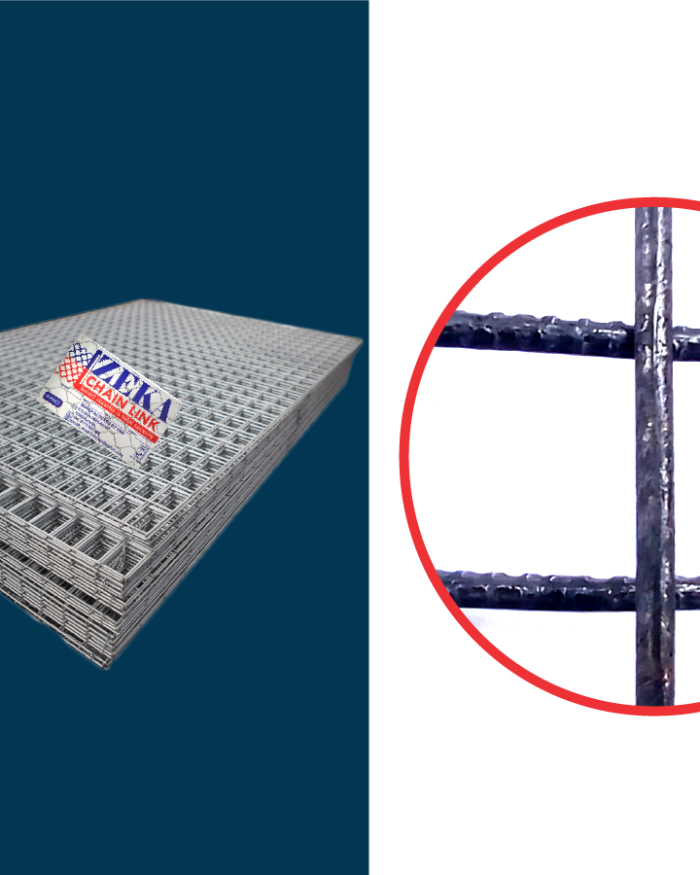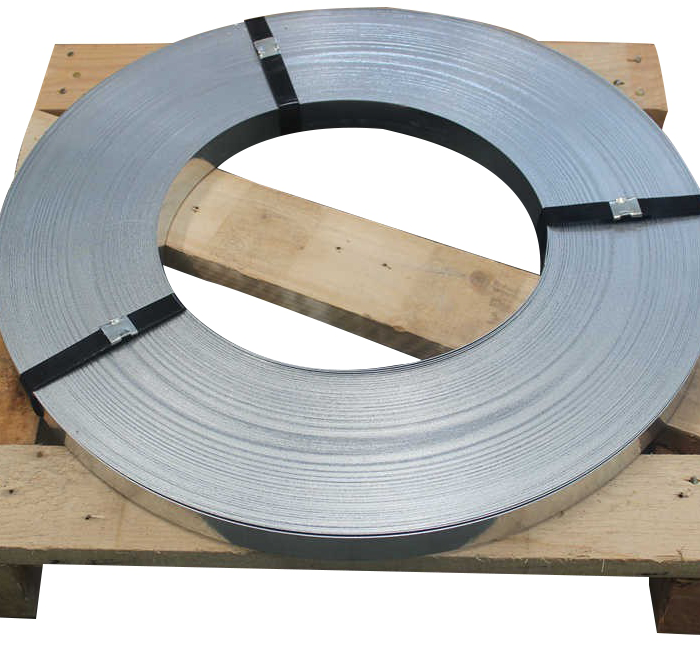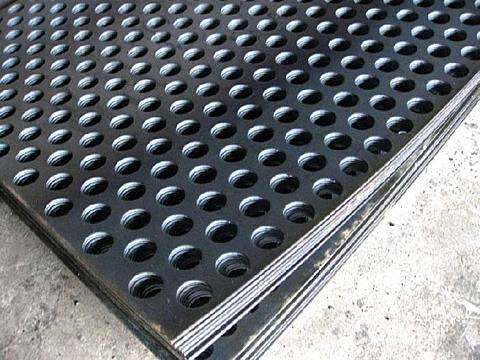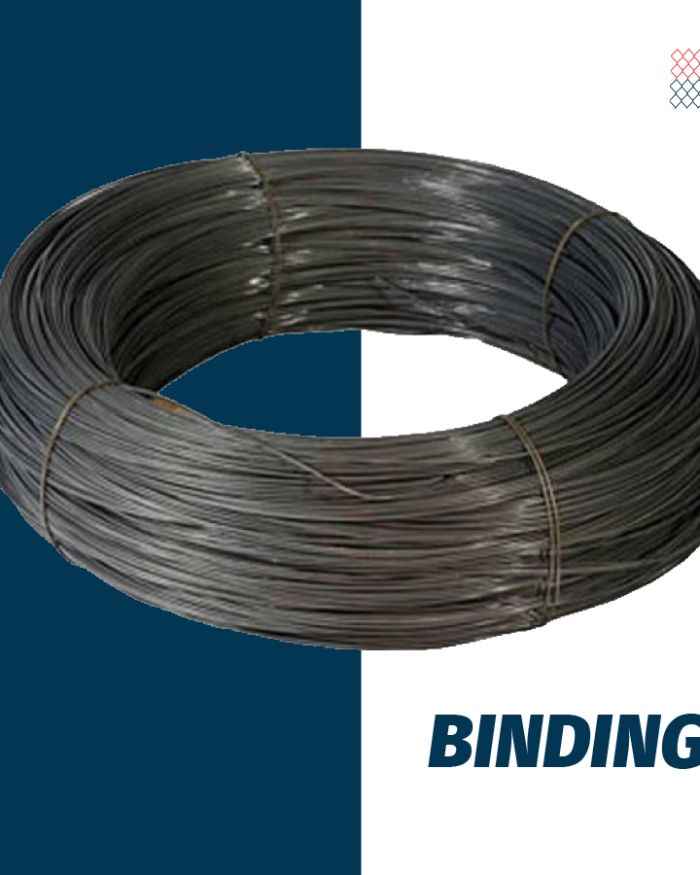- No products in the cart.
Show Filters
Categories
- Barbed wires (7)
- BRC and wire mesh (13)
- Chainlinks (28)
- Gabion boxes (9)
- Gabion box regular (3)
- Gabion mattress box (1)
- PVC coated gabion box (2)
- Welded gabion box (3)
- Hardware division (10)
- Binding wire (1)
- Black pipe (1)
- Checkered plate (1)
- Circular tube furniture pipe (1)
- Galvanized mabati (2)
- Galvanized wire (1)
- Hoop iron (1)
- Mild steel (0)
- Perforated sheets (1)
- Rectangular tube (1)
- Round bar (1)
- Shovel (1)
- Square tube (0)
- TMT bar (1)
- Wheel barrow (1)
- Zed bar (1)
- Nails and others (14)
- Ceiling nails (2)
- Ordinary nails (6)
- Polished nails (2)
- Roofing nails (2)
- Unails (2)
- Razor wire (14)
- Green razor wire BTO 22 (2)
- Razor mesh (6)
- Razor mesh BTO 18 (2)
- Razor mesh BTO 22 (2)
- Razor mesh CBT 65 (2)
- Razor wire BTO 18 (2)
- Razor wire BTO 22 (2)
- Razor wire CBT 65 (2)
- Uncategorized (0)
- Wrought irons (16)
Filter by Price
Featured Products
Clear Filters
Clear Filters
This type of mesh is a square grid of uniformly placed wires, welded at all intersections, and meeting the requirements of ASTM A185 and A497 or other standards.[1] The sizes are specified by combining the spacing, in inches or mm, and the wire cross-section area in hundredths of square inches or mm2. The common sizes are in the following table
A gabion wall is a retaining wall made of stacked stone-filled gabions tied together with wire. Gabion walls are usually battered (angled back towards the slope), or stepped back with the slope, rather than stacked vertically.
KSh 2,400.00 – KSh 13,000.00
Select Options This product has multiple variants. The options may be chosen on the product page Add To Cart This product has multiple variants. The options may be chosen on the product page
The manufacturing of chain-link fencing is called weaving. A metal wire, often galvanized to reduce corrosion, is pulled along a rotating long and flat blade, thus creating a somewhat flattened spiral. The spiral continues to rotate past the blade and winds its way through the previous spiral that is already part of the fence. When the spiral reaches the far end of the fence, the spiral is cut near the blade. Next, the spiral is pressed flat, and the entire fence is moved up, ready for the next cycle. The end of every second spiral overlaps the end of every first spiral. The machine clamps both ends and gives them a few twists. This makes the links permanent.
KSh 2,280.00 – KSh 6,270.00
Select Options This product has multiple variants. The options may be chosen on the product page Add To Cart This product has multiple variants. The options may be chosen on the product page
A polymer coating is a form of plastic coating or surface coating and consists of a plastic base. There are also tribological polymer coatings that can be adapted to numerous application needs thanks to the variety of polymers available The coating reduces friction and abrasion, thus preventing the product from wearing out due to corrosion and scratching.
KSh 4,800.00 – KSh 13,200.00
Select Options This product has multiple variants. The options may be chosen on the product page Add To Cart This product has multiple variants. The options may be chosen on the product page
A gabion wall is a retaining wall made of stacked stone-filled gabions tied together with wire. Gabion walls are usually battered (angled back towards the slope), or stepped back with the slope, rather than stacked vertically.
A gabion wall is a retaining wall made of stacked stone-filled gabions tied together with wire. Gabion walls are usually battered (angled back towards the slope), or stepped back with the slope, rather than stacked vertically.
Razor wire is a mesh of metal strips with sharp edges whose purpose is to prevent trespassing by humans. The term "razor wire", through long usage, has generally been used to describe barbed tape products. Razor wire is much sharper than the standard barbed wire; it is named after its appearance but is not razor sharp. The points are very sharp and made to rip and snag clothing and flesh.
Barbed wire is a fencing material consisting of a metal cable with regularly spaced sharp projections. The cable usually consists of two wires twisted around each other to add strength and allow the cable to expand and contract with temperature changes without breaking. The sharp points, called barbs, usually consist of short pieces of wire twisted around one or both of the cable wires.
| Gauge | Imperial | Metric |
|---|---|---|
| 12+1⁄2 gauge | 0.099 in. | 2.51 mm |
| 13 gauge | 0.093 in. | 2.34 mm |
| 13+3⁄4 gauge | 0.083 in. | 2.11 mm |
| 14 gauge | 0.080 in. | 2.03 mm |
| 16+1⁄2 gauge | 0.058 in. | 1.47 m |
Nails are typically driven into the workpiece by a hammer or nail gun. A nail holds materials together by friction in the axial direction and shear strength laterally. The point of the nail is also sometimes bent over or clinched after driving to prevent pulling out.
Nails are typically driven into the workpiece by a hammer or nail gun. A nail holds materials together by friction in the axial direction and shear strength laterally. The point of the nail is also sometimes bent over or clinched after driving to prevent pulling out.
Razor wire is a mesh of metal strips with sharp edges whose purpose is to prevent trespassing by humans. The term "razor wire", through long usage, has generally been used to describe barbed tape products. Razor wire is much sharper than the standard barbed wire; it is named after its appearance but is not razor sharp. The points are very sharp and made to rip and snag clothing and flesh.
Razor wire is a mesh of metal strips with sharp edges whose purpose is to prevent trespassing by humans. The term "razor wire", through long usage, has generally been used to describe barbed tape products. Razor wire is much sharper than the standard barbed wire; it is named after its appearance but is not razor sharp. The points are very sharp and made to rip and snag clothing and flesh.
The zinc coating, when intact, prevents corrosive substances from reaching the underlying iron. Additional electroplating such as a chromate conversion coating may be applied to provide further surface passivation to the substrate material.
KSh 2,000.00 – KSh 10,000.00
Select Options This product has multiple variants. The options may be chosen on the product page Add To Cart This product has multiple variants. The options may be chosen on the product page
Corrugated galvanised iron or steel, colloquially corrugated iron (near universal), wriggly tin (taken from UK military slang), pailing (in Caribbean English), corrugated sheet metal (in North America), or just tin (Australia) and occasionally abbreviated CGI is a building material composed of sheets of hot-dip galvanised mild steel, cold-rolled to produce a linear ridged pattern in them. Although it is still popularly called "iron" in the UK, the material used is actually steel (which is iron alloyed with carbon for strength, commonly 0.3% carbon), and only the surviving vintage sheets may actually be made up of 100% iron. The corrugations increase the bending strength of the sheet in the direction perpendicular to the corrugations, but not parallel to them, because the steel must be stretched to bend perpendicular to the corrugations. Normally each sheet is manufactured longer in its strong direction. CGI is lightweight and easily transported. It was and still is widely used especially in rural and military buildings such as sheds and water tanks. Its unique properties were used in the development of countries such as Australia from the 1840s, and it is still helping developing countries today.
KSh 840.00 – KSh 1,260.00
Select Options This product has multiple variants. The options may be chosen on the product page Add To Cart This product has multiple variants. The options may be chosen on the product page
Corrugated galvanised iron or steel, colloquially corrugated iron (near universal), wriggly tin (taken from UK military slang), pailing (in Caribbean English), corrugated sheet metal (in North America), or just tin (Australia) and occasionally abbreviated CGI is a building material composed of sheets of hot-dip galvanised mild steel, cold-rolled to produce a linear ridged pattern in them. Although it is still popularly called "iron" in the UK, the material used is actually steel (which is iron alloyed with carbon for strength, commonly 0.3% carbon), and only the surviving vintage sheets may actually be made up of 100% iron. The corrugations increase the bending strength of the sheet in the direction perpendicular to the corrugations, but not parallel to them, because the steel must be stretched to bend perpendicular to the corrugations. Normally each sheet is manufactured longer in its strong direction. CGI is lightweight and easily transported. It was and still is widely used especially in rural and military buildings such as sheds and water tanks. Its unique properties were used in the development of countries such as Australia from the 1840s, and it is still helping developing countries today.
KSh 540.00 – KSh 810.00
Select Options This product has multiple variants. The options may be chosen on the product page Add To Cart This product has multiple variants. The options may be chosen on the product page
Mild steel (iron containing a small percentage of carbon, strong and tough but not readily tempered), also known as plain-carbon steel and low-carbon steel, is now the most common form of steel because its price is relatively low while it provides material properties that are acceptable for many applications. Mild steel contains approximately 0.05–0.30% carbon[1] making it malleable and ductile. Mild steel has a relatively low tensile strength, but it is cheap and easy to form. Surface hardness can be increased with carburization.[4]
Mild steel (iron containing a small percentage of carbon, strong and tough but not readily tempered), also known as plain-carbon steel and low-carbon steel, is now the most common form of steel because its price is relatively low while it provides material properties that are acceptable for many applications. Mild steel contains approximately 0.05–0.30% carbon[1] making it malleable and ductile. Mild steel has a relatively low tensile strength, but it is cheap and easy to form. Surface hardness can be increased with carburization.[4]
KSh 600.00 – KSh 1,500.00
Select Options This product has multiple variants. The options may be chosen on the product page Add To Cart This product has multiple variants. The options may be chosen on the product page
The wheelbarrow is designed to distribute the weight of its load between the wheel and the operator, so enabling the convenient carriage of heavier and bulkier loads than would be possible were the weight carried entirely by the operator. As such it is a second-class lever. Traditional Chinese wheelbarrows, however, had a central wheel supporting the whole load. The use of wheelbarrows is common in the construction industry and in gardening. The typical capacity is approximately 100 liters (3.53 cubic feet) of material.
KSh 2,800.00 – KSh 5,600.00
Select Options This product has multiple variants. The options may be chosen on the product page Add To Cart This product has multiple variants. The options may be chosen on the product page
A shovel is a tool used for digging, lifting, and moving bulk materials, such as soil, coal, gravel, snow, sand, or ore. Most shovels are hand tools consisting of a broad blade fixed to a medium-length handle. Shovel blades are usually made of sheet steel or hard plastics and are very strong. Shovel handles are usually made of wood (especially specific varieties such as ash or maple) or glass-reinforced plastic (fiberglass). Hand shovel blades made of sheet steel usually have a folded seam or hem at the back to make a socket for the handle. This fold also commonly provides extra rigidity to the blade. The handles are usually riveted in place. A T-piece is commonly fitted to the end of the handle to aid grip and control where the shovel is designed for moving soil and heavy materials. These designs can all be easily mass-produced.
Mild steel (iron containing a small percentage of carbon, strong and tough but not readily tempered), also known as plain-carbon steel and low-carbon steel, is now the most common form of steel because its price is relatively low while it provides material properties that are acceptable for many applications. Mild steel contains approximately 0.05–0.30% carbon[1] making it malleable and ductile. Mild steel has a relatively low tensile strength, but it is cheap and easy to form. Surface hardness can be increased with carburization.[4]
KSh 540.00 – KSh 3,800.00
Select Options This product has multiple variants. The options may be chosen on the product page Add To Cart This product has multiple variants. The options may be chosen on the product page
Mild steel (iron containing a small percentage of carbon, strong and tough but not readily tempered), also known as plain-carbon steel and low-carbon steel, is now the most common form of steel because its price is relatively low while it provides material properties that are acceptable for many applications. Mild steel contains approximately 0.05–0.30% carbon[1] making it malleable and ductile. Mild steel has a relatively low tensile strength, but it is cheap and easy to form. Surface hardness can be increased with carburization.[4]
KSh 2,880.00 – KSh 4,000.00
Select Options This product has multiple variants. The options may be chosen on the product page Add To Cart This product has multiple variants. The options may be chosen on the product page
Mild steel (iron containing a small percentage of carbon, strong and tough but not readily tempered), also known as plain-carbon steel and low-carbon steel, is now the most common form of steel because its price is relatively low while it provides material properties that are acceptable for many applications. Mild steel contains approximately 0.05–0.30% carbon[1] making it malleable and ductile. Mild steel has a relatively low tensile strength, but it is cheap and easy to form. Surface hardness can be increased with carburization.[4]
KSh 6,400.00 – KSh 7,600.00
Select Options This product has multiple variants. The options may be chosen on the product page Add To Cart This product has multiple variants. The options may be chosen on the product page
Wrought iron is highly refined, with a small amount of silicate slag forged out into fibers. It comprises around 99.4% iron by mass. The presence of slag can be beneficial for blacksmithing operations, such as forge welding since the silicate inclusions act as a flux and give the material its unique, fibrous structure. The silicate filaments in the slag also protect the iron from corrosion and diminish the effect of fatigue caused by shock and vibration.
KSh 500.00 – KSh 1,000.00
Select Options This product has multiple variants. The options may be chosen on the product page Add To Cart This product has multiple variants. The options may be chosen on the product page
Wrought iron is highly refined, with a small amount of silicate slag forged out into fibers. It comprises around 99.4% iron by mass. The presence of slag can be beneficial for blacksmithing operations, such as forge welding since the silicate inclusions act as a flux and give the material its unique, fibrous structure. The silicate filaments in the slag also protect the iron from corrosion and diminish the effect of fatigue caused by shock and vibration.
KSh 500.00 – KSh 1,000.00
Select Options This product has multiple variants. The options may be chosen on the product page Add To Cart This product has multiple variants. The options may be chosen on the product page
Item added to wishlist View Wishlist
Item removed from wishlist

















































